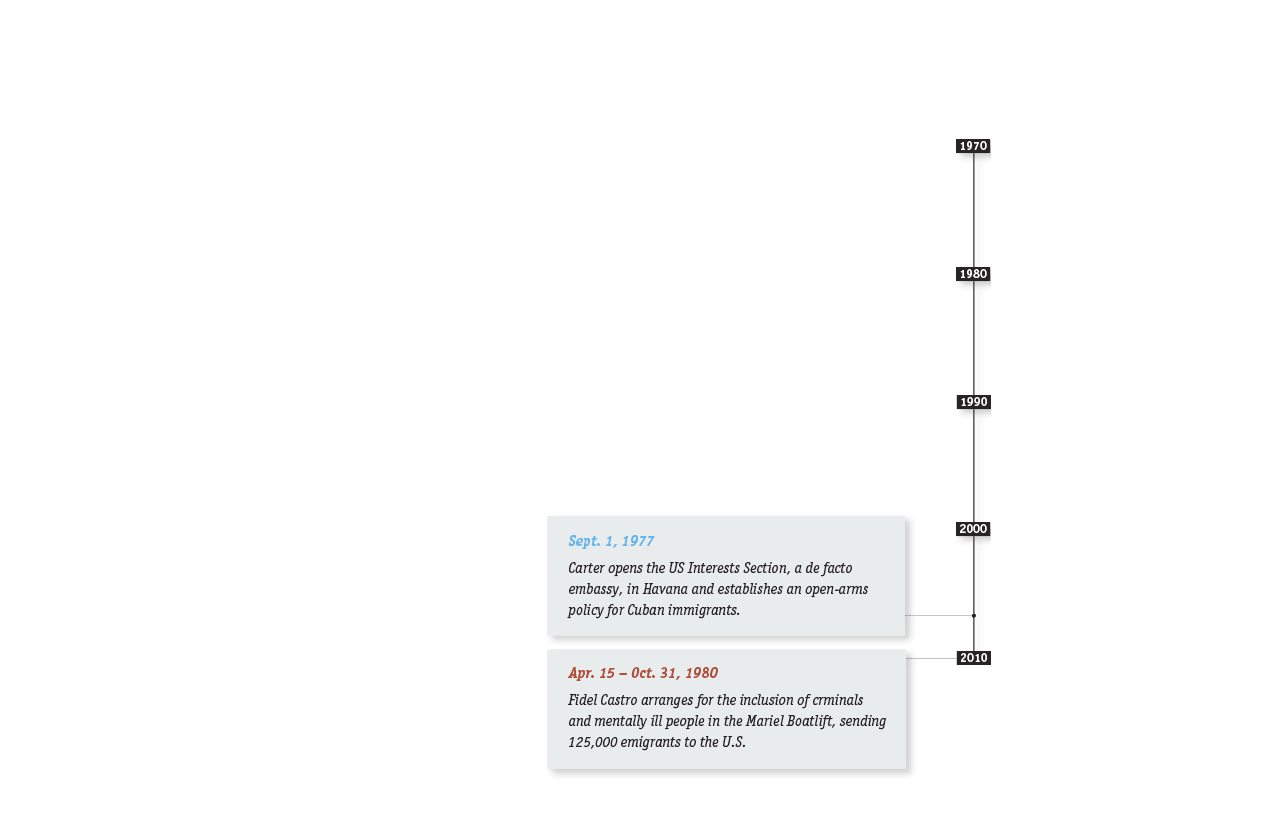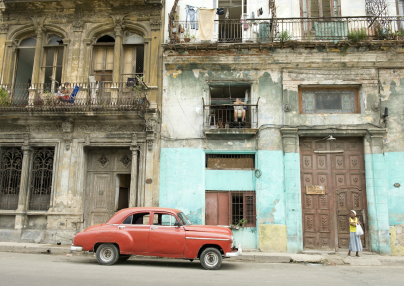



Isolating Cuba has been more than ineffective. It’s also provided the Castro brothers with a convenient political scapegoat for the country’s ongoing economic problems, rather than drawing attention to their own mismanagement. Moreover, in banning the shipment of information-technology products, the United States has effectively assisted the Cuban government in shutting out information from the outside world, yet another potential catalyst for democratization.


This pattern suggests that the Castro brothers do not want the embargo to end.



of Floridians favor ending the embargo
of Americans favor ending the embargo
Source: Atlantic Council, Jan 2014


Supporters of the trade embargo — like Cuban-American Sen. Robert Menendez (D-N.J.) — have long argued that easing the restrictions would only reward Castro for the regime’s ongoing repression of political dissidents. We need to keep up the economic pressure on Cuba, so this logic goes, in order to keep pressure on the regime to do something about human rights. But there’s a long-standing empirical relationship between trade and democracy. The usual logic put forth to explain this relationship is that trade creates an economically independent and politically aware middle class, which, in turn, presses for political reform. Easing the current travel restrictions would allow for far deeper linkages between non-governmental
organizations from both countries, which would be a powerful mechanism for democratic reform. In addition, by enabling visiting scholars and religious groups to stay in Cuba for up to two years (as the presidential order would allow) rather than a matter of weeks (as is currently the case) we could help further democracy in Cuba. American scholars and activists who would stay on the island longer would gain much better insight into where the pressure points for democracy exist.





Kennedy signs the embargo against Cuba.
Embargo continues.
To argue that U.S.-Cuban policy is an anachronism is putting it mildly. In an international climate marked by cooperation on issues ranging from terrorism to global financial crises, holding on to this last vestige of the Cold War foreign policy no longer makes sense. (Bear in mind that the young people now entering college were not even alive when Czechoslovakia existed.) Sure, there’s still tension between the United States and Russia. But the recent renegotiation of the START agreement on nuclear proliferation reinforces the notion that the Cold War is no longer the dominant prism for understanding that bilateral relationship, much less the Cuban-American one.


Of course, if the embargo were the last outpost of Cold War politics and it produced results, that might be an argument for continuing it. But scholars and analysts of economic sanctions have repeatedly questioned the efficacy of economic statecraft against rogue states unless and until there’s been regime change. And that’s because, as one scholar put it, “interfering with the market (whether using sanctions, aid, or other government policies) has real economic costs, and we rarely know enough about how the target economy works or how to manipulate the political incentives of the target government to achieve our goals.”



If strategic arguments don’t persuade you that it’s time to end the embargo, then perhaps humanitarian arguments will. For as anyone who’s traveled to the island knows, there’s a decidedly enclave-like feel to those areas of the economy where capitalism has been allowed to flourish in a limited sense (e.g. tourism) and the rest of the island, which feels very much like the remnant of an exhausted socialist economic model. When I went there in the 1990s with my sister, I remember the throngs of men who would cluster outside the tourist haunts. They’d hope to persuade visitors like me to pretend to be their escort so they could sneak into the fancier hotels and nightclubs, which they could not enter otherwise.
That situation has apparently eased in recent years as the government has opened up more sectors of the economy to ordinary Cubans. But the selective nature of that deregulation has only exacerbated economic inequalities. Again, one can argue that the problem here is one of poor domestic policy choices, rather than the embargo. But it’s not clear that ordinary Cubans perceive that distinction. Moreover, when you stand in the airport and watch tourists disembark with bucket-loads of basic medical supplies, which they promptly hand over to their (native) friends and family, it’s hard not to feel that U.S. policy is perpetuating an injustice.


It’s long been recognized that opening up Cuba to American investment would be a huge boon to the tourism industry in both countries. According to the Cuban government, 250,000 Cuban-Americans visited from the United States in 2009, up from roughly 170,000 the year before, suggesting a pent-up demand. Lifting the embargo would also be an enormous boon the U.S. agricultural sector. One 2009 study estimated that doing away with all financing and travel restrictions on U.S. agricultural exports to Cuba would have boosted 2008 dairy sales to that country from $13 million to between $39 million and $87 million, increasing U.S. market share from 6 percent to between 18 and 42 percent.


Another reason to think that it might be time to reconsider our Cuba policy is this natural resource. Cuba has begun exploratory drilling in search of oil in its territorial waters, with some reports estimating the island could become a major oil producer — and refiner — over the next five to 10 years. In an era where geopolitical realities may make places like Venezuela and the Middle East less reliable sources of oil for the United States, we need all the friends we can get, particularly when they’re right next door.


Another reason to question the link between the embargo and human rights is that it’s a double standard that flies in the face of U.S. foreign policy toward other high-profile authoritarian countries, most notably China. Stephen Colbert once quipped that Cuba is “a totalitarian, repressive, communist state that — unlike China — can’t lend us money.” Unless and until the U.S. pursues a consistent policy of sanctions against politically repressive regimes, the case against Cuba doesn’t hold up very well.


Cuba is the only country in the world where Americans are restricted by their own government from visiting freely. Yes, that’s right. It’s easier to go to North Korea (from the American end of things) than it is to travel to our Caribbean neighbor. In a country whose “great American novelist” — that would be Jonathan Franzen — just published a national epic titled “Freedom,” one need not underscore this irony.